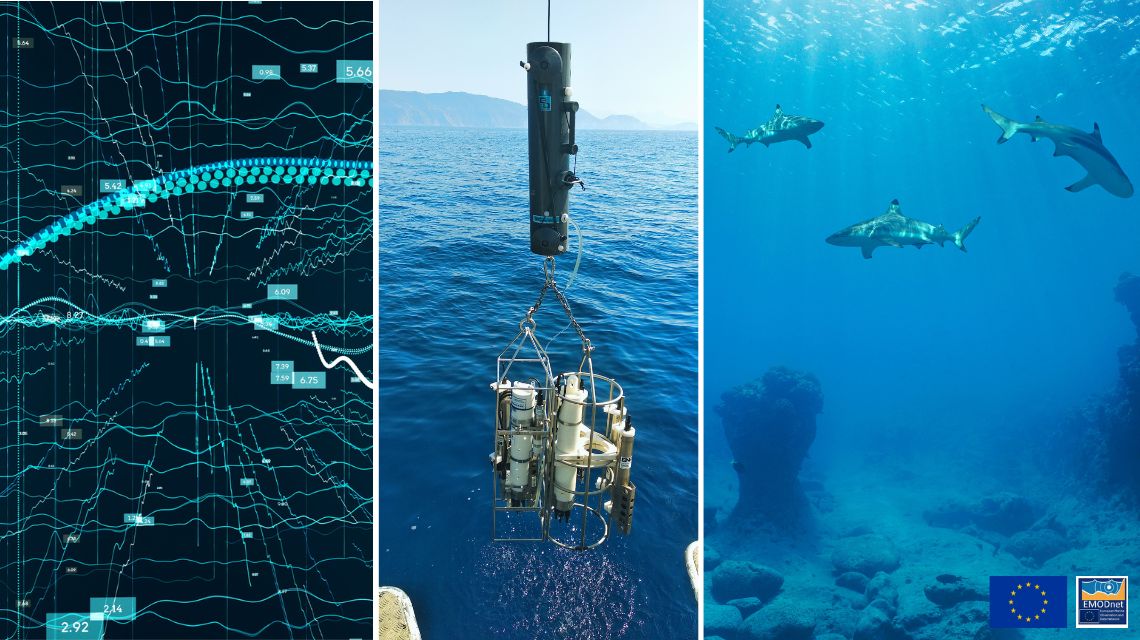Italian National Agency for New Technologies, Energy and Sustainable Economic Development

Environment: ENEA makes marine data more available
European project to promote climate studies and offshore renewable energy generation gets underway
Making marine health data more available, accessible, interoperable and reusable, that is FAIR[1]. This is the objective of the EMODnet Data Ingestion project, which aims to make more available and enrich the total data collected by the European Marine Observatory and Data Network (EMODnet), the largest European network to observe seas and oceans[2].
The project, now in its fourth edition, is funded by the European Commission[3] and comprises 42 partners, including ENEA which took action to improve the availability of marine data in support of climate studies, the conservation of fragile habitats and to make human activities at sea more sustainable, from aquaculture to the production of offshore renewable energy.
ENEA, through its laboratories at the Santa Teresa research center, is part of the project as a processing data center expert in physical oceanography and carries out scientific dissemination tasks.
The data entered into the EMODnet portal includes temperature, pressure, conductivity and salinity of the water collected by ENEA, together with CNR, DLTM (Ligurian District of Marine Technologies), INGV and the Navy Hydrographic Institute, at the monitoring station installed in 2019 in the Eastern Ligurian Sea near the Bay of Santa Teresa (La Spezia).
The latest edition of the project includes a further development of the portal which, since 2016, has gathered new data that have been fed into the EMODnet network. These entries are initially entered without any particular processing but become open in EMODnet only after subsequent processing carried out with the support of expert data centers.
“To ensure data is reliable, accurate and accessible, it needs to be assessed through international standards, with the necessary auxiliary information which provides a better understanding of information”, explained Leda Pecci, researcher at the ENEA Biodiversity and Ecosystem Services Laboratory.
The EMODnet Data Ingestion made it possible to collect over 1,400 datasets from 200 different providers. “The data acquisition work and wider sharing of marine data benefit not only the scientific community, but also maritime planning and the blue economy: we have opened a discussion table with stakeholders in the offshore renewable energy production sector, to harmonize the acquisition and management of marine data necessary to obtain concessions and licenses, authorizations subject to long and expensive geophysical surveys of the seabed and environmental impact studies, to guarantee sustainability of the activities” said the researcher.
Video
Notes
[1] FAIR: findable, accessible, interoperable e reusable.
[2] The European Marine Observatory and Data Network (EMODnet), active since 2009, is a European marine observation and data infrastructure funded by the European Maritime and Fisheries Fund as a long-term initiative of the Directorate-General for Maritime Affairs and Fisheries (DG MARE) of the European Commission (EC). The input of new data, currently not accessible, into the network is managed in the long term through the “EMODnet Data Ingestion” projects, whose fourth edition is about to take place.
[3] Funds are managed through the European Executive Agency for Climate, Infrastructure and the Environment (CINEA). The scientific coordinator of the project is the HCMR (Hellenic Centre for Marine Research) and the technical coordinator is the private company MARIS BV.
